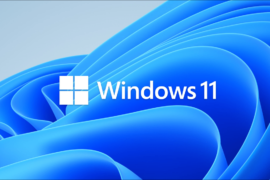This post explains the system to students and new users or reminds you of the requirements to run Windows 11 on a PC, tablet, or laptop. Most of the PCs and laptops being built today will probably support Windows 11. The system requirements for Windows 11 are not much different from those for Windows 10.
In fact, the only big differences between the system requirements for Windows 10 and Windows 11 come down to a few specialized features packed into the system’s CPU and motherboard. If you have a fairly recent Windows 10 computer, it is more likely to support upgrading to Windows 11.
To help you determine if your PC is compatible with Windows 11, Microsoft has released an application called Checking the PC status that you can install and run on your Windows 10 PC. If the PC meets the minimum system requirements, the application will tell you.
Here we are going to list the minimum requirements necessary to run Windows 11. You can refer to it to make a quick decision about what your next computer will include.
What are the basic requirements for Windows 11?
As mentioned above, Microsoft included some basic requirements that must be met to install Windows 11. Although you can install Windows 11 on hardware that does not meet the minimum requirements, Microsoft does not recommend such installation methods.
Here’s a quick look at the minimum system requirements for Windows 11. The hardware requirements are not very similar to the minimum requirements for Windows 10 with a few key differences.
| Processor | 1 gigahertz (GHz)or faster with 2 or more cores in one64-bit processor supported or system on a chip (SoC). |
| RAM | 4 gigabytes (GB) or more. |
| Storage | 64GB or larger storage device. |
| System firmware | UEFI, Secure Boot Capability. |
| TPM | Trusted Platform Module (TPM) version 2.0. |
| Graphic card | DirectX 12 or later compatible with WDDM 2.0 driver. |
| Monitor | High definition display (720p) over 9 ”diagonal, 8 bits per color channel. |
| Internet connection and Microsoft account | Windows 11 Home edition requires Internet connectivity and a Microsoft account. |
What are the Windows 11 CPU requirements?
To run Windows 11, you will need a 64-bit CPU running at least 1 GHz with two or more cores. Meeting this requirement is easy, as the vast majority of computing devices in use today meet these specifications.
What are the memory requirements of Windows 11?
To run Windows 11, the device must include a minimum of 4 GB of RAM. Again, it is not uncommon to see devices with more than 4GB or RAM installed, so this requirement should be met with most devices in use today.
What are the Windows 11 storage requirements?
As mentioned in the table above, to install and run Windows 11, the device requires at least 64GB of free space. The only thing most modern devices have is storage space. Meeting this requirement should not be difficult, as the computer will have much more free space available.
What are the graphics requirements for Windows 11?
Windows 11 requires a DirectX 12 and WDDM 2.0 compatible graphics card (Windows display driver model) with a minimum resolution of 720p. Again, these are not the 90s where computing devices did not support resolutions higher than 720p.
If you have a computer today, it is more likely to support higher than 720p resolution.
As you can see, most of the computers in use today will meet the minimum requirements of Windows 11 above. If your computer does not meet the above requirements, it may be time to purchase a new one.
How to install Windows 11 on supported hardware
If your device doesn’t meet the basic Windows requirements above, we’ve written a post that showed you how to create a Windows 11 ISO for unsupported hardware.
You can view that post by clicking the link below:
How to install Windows 11 on unsupported hardware
Conclusion:
This post explains the minimum Windows 11 requirements to install and run. If your computer doesn’t meet the above requirement, may it be time to get a new one?




